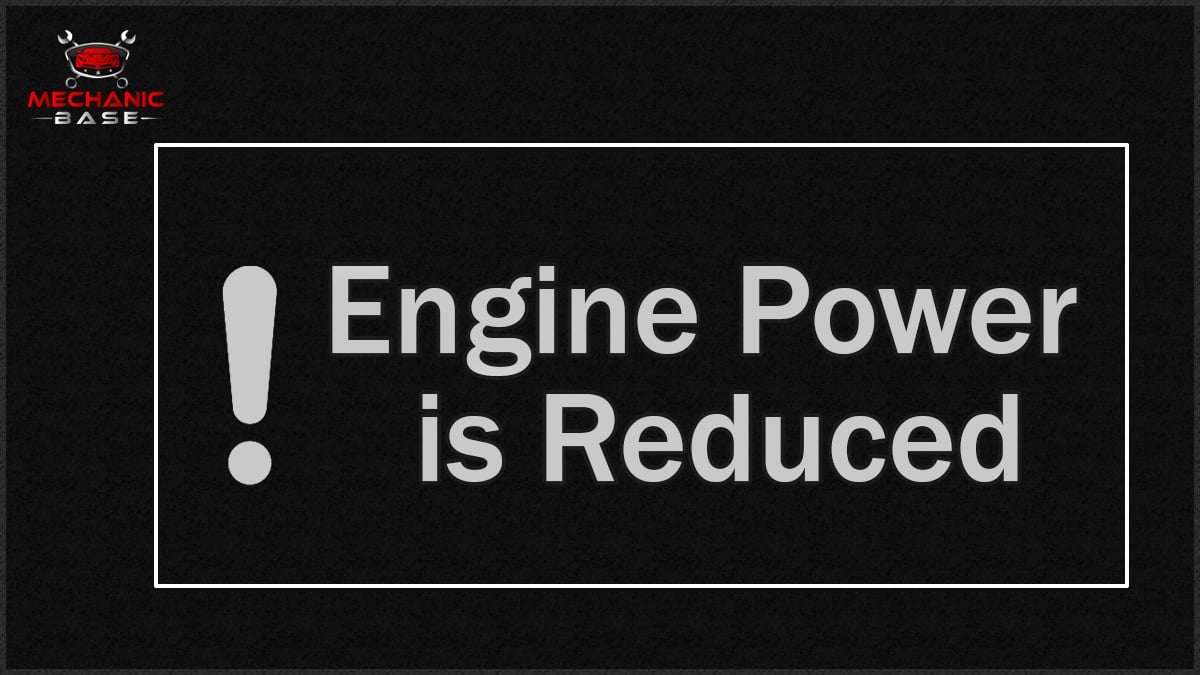Chevy Malibu Reduced Power Warning: Understanding and Addressing the Issue
Imagine cruising down the highway in your Chevy Malibu when suddenly, the dreaded "Reduced Power" warning illuminates your dashboard. Your heart might skip a beat as the car's performance noticeably diminishes. This disconcerting experience is, unfortunately, a common one for many Malibu owners. What does this warning mean, and more importantly, what should you do when it appears?
The "Reduced Power" warning in a Chevy Malibu signals a problem within the vehicle's electronic throttle control system. This system manages the engine's power output based on driver input and various sensor readings. When a fault is detected, the system limits engine power to prevent further damage. This safeguard can manifest as sluggish acceleration, limited speed, and a general decrease in responsiveness.
While unsettling, the reduced power mode is not necessarily indicative of a catastrophic engine failure. It's often triggered by relatively minor issues, such as a faulty sensor or a loose connection. However, ignoring the warning can lead to more significant problems down the line. Promptly addressing the underlying cause is crucial to restore your Malibu's performance and prevent potential damage.
The electronic throttle control system, introduced in the late 1990s, replaced the traditional mechanical throttle cable. This computerized system offers greater precision and efficiency in managing engine power. However, its complexity also introduces potential points of failure. The "Reduced Power" warning serves as an early indicator of these potential problems. Understanding its significance is essential for any Malibu owner.
Several factors can trigger the reduced power warning in a Chevy Malibu. These include malfunctioning throttle position sensors, issues with the mass airflow sensor, or problems with the accelerator pedal position sensor. Other potential culprits include a failing throttle body, damaged wiring harnesses, or even a low battery voltage. Determining the specific cause often requires diagnostic scanning using an OBD-II reader.
One approach to addressing the "Reduced Power" warning is to begin by checking for any loose or corroded connections related to the throttle system. Inspecting the wiring harness and ensuring secure connections can sometimes resolve the issue. If this doesn't work, using an OBD-II scanner can provide valuable diagnostic codes that pinpoint the problem area. These codes can guide you towards the specific component requiring attention.
While there are no direct "benefits" to having a reduced power warning, its presence serves as a vital diagnostic tool. It alerts you to potential problems before they escalate, potentially saving you from costly repairs in the future.
Advantages and Disadvantages of Reduced Power Mode
| Advantages | Disadvantages |
|---|---|
| Prevents further engine damage | Limited driving capability |
| Provides an early warning of potential problems | Can be inconvenient and disruptive |
Frequently Asked Questions
Q: What should I do when the "Reduced Power" warning appears?
A: Safely pull over and assess the situation. If possible, use an OBD-II scanner to retrieve diagnostic codes.
Q: Can I continue driving with the "Reduced Power" warning?
A: It's advisable to avoid prolonged driving and seek professional diagnosis as soon as possible.
Q: Is it expensive to fix the underlying issue?
A: The cost varies depending on the specific cause, ranging from a simple sensor replacement to more complex repairs.
Q: Can a low battery cause this warning?
A: Yes, a low battery voltage can sometimes trigger the "Reduced Power" warning.
Q: How can I prevent this warning from occurring in the future?
A: Regular maintenance and timely repairs can help prevent issues that trigger the warning.
Q: What is an OBD-II scanner?
A: It's a diagnostic tool that reads codes from your car's computer, helping identify problems.
Q: Is it safe to drive with reduced power?
A: While you can typically drive short distances, it's best to minimize driving and address the issue promptly.
Q: Where can I find more information about this issue?
A: Online forums and automotive websites often contain valuable information and troubleshooting tips.
Tips and Tricks: Regularly check your battery voltage and connections. Address any check engine lights promptly. Perform routine maintenance according to your vehicle's manual.
In conclusion, the "Reduced Power" warning in a Chevy Malibu is a significant indicator of a potential problem within the vehicle's electronic throttle control system. Understanding this warning, its potential causes, and the appropriate steps to take can prevent further damage and restore your Malibu's performance. While the warning can be unsettling, it's crucial to remember that it's a protective measure designed to prevent more severe issues. By addressing the underlying cause promptly and following preventative maintenance practices, you can ensure a smoother and more reliable driving experience. Take action today by familiarizing yourself with this essential aspect of Malibu ownership, empowering yourself to handle this situation effectively if it arises. Ignoring this warning could lead to more costly repairs and potentially leave you stranded, highlighting the importance of proactive maintenance and a clear understanding of your vehicle's systems. By taking the time to address the warning promptly, you are investing in the longevity and reliability of your Chevy Malibu.
Is my bathtub big enough for like everything
Unlock your inner artist exploring the world of dibujos de corazones pinterest
Stop ignoring that wall epic living room design on a budget














